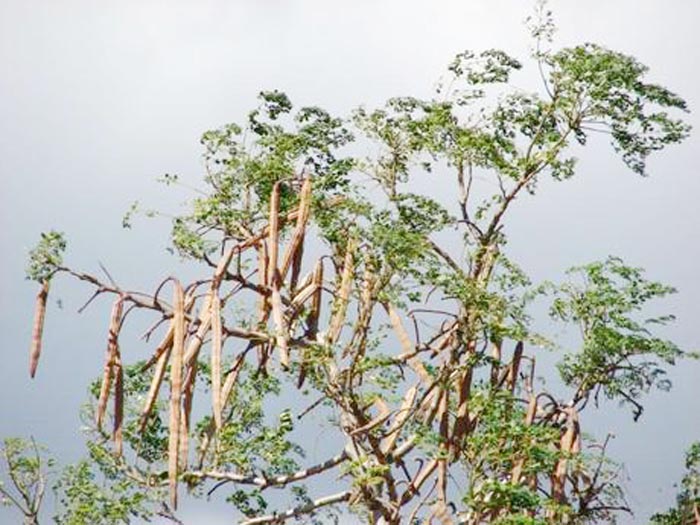The Moringa Oleifera Lam, a tree originated from Africa and Asia, is known as the “Never Die” tree because of its amazing capacity to survive both hard conditions and bad maintenance. In Burundi, the Moringa Oleifera is a new plant that is being cultivated and various products derived from it are already available on the shelves of many groceries.- Joanna Nganda
The uses of the Moringa tree seem to be endless. Moringa Oleifera trees may survive despite high altitudes (up to 1500 meters) or very dry and arid deserts with less than 400 mm annual rainfall. These criteria make the Moringa tree a sound investment with an outstanding value. Dismas Nditabiriye, Coordinator of the ACVE (Green Belt Action for Environment) says that Moringa is an amazing plant: “in India, it is common to eat Moringa’s fruit and in the Sahel Moringa’s leaves are considered as green vegetables. Nutritional analyses have shown that Moringa’s leaves are more concentrated in vitamins, minerals, and proteins than most vegetables. Many food programs use the leaves to act against malnutrition and all the ailments associated to it such as blindness.” Dismas Nditabiriye also notes that Moringa leaves have a bright future in various fields: in agriculture as green manure, in animal nutrition as a growth hormone, in plant pharmaceutical industry, or even in paper industry. The Moringa is a tree with nothing but great properties from the very top to the roots. “leaves and seeds are cooked and eaten by some people in different cultures; seeds also give very rich oil that is used as cooking or salad dressing oil. Branches are used as firewood and finally, the roots have a wide range of pharmaceutical usage.” concludes Dismas Nditabiriye.
The Moringa oil
The seeds from which the Moringa oil is extracted have high fat contents. Once peeled, the oil content of the seed is 42%. The oil is full of properties that make it unique and versatile. Dismas Nditabiriye explains that the oil has 82% of unsaturated fatty acid and is particularly rich in oleic acid (71% compared to only 40% in other vegetable oils) making it a very good cooking oil, especially for Africa which has less cooking oil. The use of Moringa oil ranges from cosmetology to delicate machinery such as watch-making, because the oil doesn’t get rancid and sticky. It also has a place of honor in perfume industries where it stands out due to its ability to retain volatile substances. In cosmetology, Moringa oil is known to rejuvenate, repair, soften and hydrate both normal and very dry skins. The oil is packed with antioxidants good for the skin and has incredible anti-aging properties.















 IWACU Open Data
IWACU Open Data

